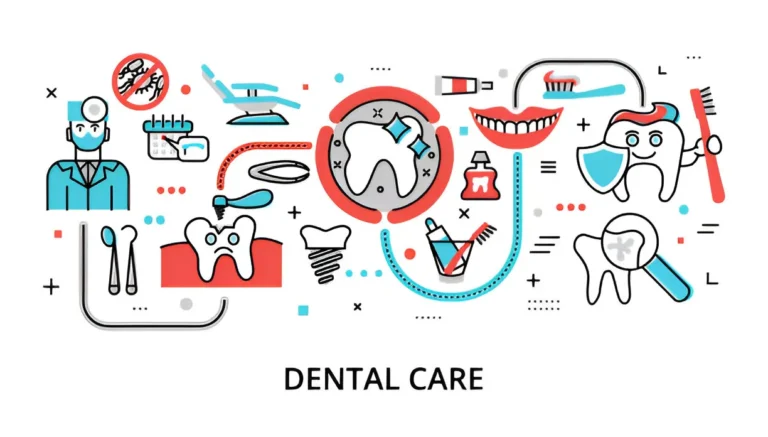The Psychology of Perfect Teeth: How Porcelain Veneers Transform More Than Just Smiles
When a patient first walked into a dental clinic seeking porcelain veneers , they thought they were simply fixing a chipped tooth. What they discovered was a transformation that rippled through every aspect of their life—from boardroom presentations to first dates. This story illustrates a profound truth that dental professionals have observed for decades: the psychological impact of dental aesthetics extends far beyond the mouth and into the way people interact with the world around them.
The Mirror Neuron Effect
Neuroscience reveals that humans are hardwired to mirror facial expressions, particularly smiles. When we see someone smile genuinely, our mirror neurons fire, creating an empathetic response that makes us feel more positive. However, this biological programming works in reverse when individuals are self-conscious about their teeth. The hesitation to smile fully—a common trait among those with dental imperfections—creates a cascade of social and psychological consequences that can subtly shape friendships, job opportunities, and even romantic connections.
Research demonstrates that people who smile more frequently are perceived as more trustworthy, competent, and approachable. This creates what psychologists call the “smile dividend”—a measurable advantage in both personal and professional interactions. For individuals considering cosmetic dental work, understanding this psychological foundation helps explain why the investment in procedures like porcelain veneers often yields returns that extend far beyond aesthetic improvement, influencing confidence, energy, and the courage to show up more fully.
The Confidence Cascade
A behavioral psychologist specializing in body image explains that dental confidence operates through what is termed the “confidence cascade.” When individuals feel secure about their smile, they’re more likely to engage in face-to-face conversations, speak up in meetings, and pursue leadership opportunities. This increased social engagement then reinforces positive self-perception, creating an upward spiral of confidence and achievement.
Patients who undergo veneer treatment often report promotions, improved relationships, and increased social satisfaction within months of their procedure. The transformation isn’t magical—it’s psychological. When people stop filtering their expressions through dental insecurity, they become more authentically themselves. They laugh more freely, participate in photographs they would have avoided, and often describe a renewed sense of belonging in both professional and personal circles.
This phenomenon is particularly pronounced in today’s image-conscious society, where first impressions are formed within milliseconds and often determine the trajectory of relationships and opportunities. The psychological freedom that comes with dental confidence can be genuinely life-changing.
The Perfectionism Trap
However, the psychology of dental aesthetics isn’t uniformly positive. The pursuit of perfect teeth can sometimes mask deeper psychological issues or create new ones. Body dysmorphic disorder (BDD) affecting dental appearance is an emerging concern among mental health professionals. Some individuals become obsessed with minor imperfections that others barely notice, leading to excessive procedures and persistent dissatisfaction.
Cosmetic dentists with extensive experience emphasize the importance of psychological screening before major aesthetic procedures. True confidence comes from self-acceptance, and cosmetic dentistry should enhance that acceptance, not replace it.
The key lies in understanding the difference between realistic improvement and perfectionist obsession. Healthy candidates for veneer treatment typically have specific concerns they want to address, while maintaining realistic expectations about outcomes and limitations. They seek enhancement, not absolute flawlessness.
Social Media and Dental Expectations
The rise of social media has fundamentally altered how we perceive dental aesthetics. Instagram filters and photo editing apps have created unrealistic standards for tooth appearance, leading to what researchers call “digital dysmorphia”—dissatisfaction with one’s natural appearance compared to digitally enhanced images.
This digital influence has created both opportunities and challenges for cosmetic dentistry. While social media awareness has reduced stigma around aesthetic dental procedures and educated people about available options, it has also inflated expectations and sometimes promoted unrealistic standards that no natural smile could maintain over a lifetime.
The most successful veneer patients, according to psychological studies, are those who focus on personal improvement rather than matching idealized images they’ve seen online. They understand that the goal is enhancement of their natural features, not transformation into someone else entirely. They value function as much as appearance and often discover that a slightly imperfect but healthy smile feels more authentic than one that looks artificially flawless.
The Ripple Effect of Transformation
The psychological benefits of dental confidence extend into unexpected areas of life. Studies show that individuals who feel good about their smile are more likely to maintain better oral hygiene, make healthier lifestyle choices, and even report improved intimate relationships. The connection between dental aesthetics and overall well-being creates a positive feedback loop that amplifies the initial investment in cosmetic treatment.
Career impacts are particularly notable. Research found that people with attractive smiles are 58% more likely to be perceived as successful and 53% more likely to be seen as wealthy, regardless of their actual financial status. In competitive professional environments, this perception advantage can translate into tangible career benefits. Even subtle changes, such as feeling comfortable during job interviews or networking events, can open doors that might previously have remained closed.
The Future of Dental Psychology
As our understanding of the psychology behind dental aesthetics deepens, treatment approaches are evolving to address both the physical and mental aspects of smile transformation. Progressive dental practices now incorporate psychological consultation into their treatment planning, ensuring that patients have realistic expectations and healthy motivations for pursuing cosmetic work.
The integration of psychology into cosmetic dentistry represents a maturation of the field, recognizing that true success is measured not just in aesthetic outcomes, but in improved quality of life and psychological well-being.
For individuals considering porcelain veneers Melbourne or other cosmetic dental procedures, the message is clear: the transformation extends far beyond the physical. When approached with realistic expectations and healthy motivations, dental aesthetics can indeed unlock psychological benefits that enhance every aspect of life—from the boardroom to the bedroom, from professional success to personal relationships.
The psychology of perfect teeth reveals that sometimes, the most profound changes begin with something as simple as feeling confident enough to smile without reservation. In that moment, the world reflects the change back, creating a ripple effect that touches more lives than one might ever anticipate.
Read more: Why Great Leaders Think Like Gardeners, Not Generals » Dunkin Donuts
Prenups and Postnups: Not Just for the Wealthy » Dunkin Donuts
Prenups and Postnups: Not Just for the Wealthy » Dunkin Donuts






